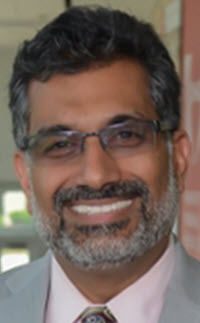Abstract
Excerpted from: Ali S. Khan, Witch Doctors, Zombies, and Oracles: Rethinking Health in America, 28 Health Matrix: Journal of Law-Medicine 79 (2018) (1 Footnotes) (Full Document)
 On this All Hallow's Eve, I am going to tell you a ghost story.
On this All Hallow's Eve, I am going to tell you a ghost story.
Specifically, I am going to tell you a story about witch doctors, zombies, and oracles and how that references rethinking health in America. You've probably noticed that I didn't say healthcare in America; I said health in America. And I am very deliberate about the choice of that word.
Let's start with someone who is often attributed as the first physician, Hippocrates. But I would like you to think of him a little differently. I would like you to think of him as the first public health doctor in the world when he said things like “it is more important to know what sort of person has a disease than to know what sort of disease a person has.”
Like all good ghost stories, there is a beginning, a middle, and an end. Our ghost story is going to be about the health of Americans - Where are we? How are we getting there? And then we are going to ask, where is the health of America going?
Let's start with some of the myths, or ‘zombies' of healthcare that just refuse to die. These include the myths that American healthcare is the best; that employment guarantees health insurance in the United States; that uninsured individuals have equal access to emergency room services; that the free market is the best way to get the highest quality health insurance for the lowest cost; and that universal coverage is too expensive and unaffordable. Hopefully, by the time this story is done, you will agree that these are all zombies.
. . .
Let's return back now to the myths, or ‘zombies' that are out there about healthcare in the United States, and see if we can remove some of these. Does America have the best healthcare system in the world? No, we don't; for the community as a whole, America does not have the best healthcare system. Employment does not guarantee health insurance in America; there are lots of people who remain uninsured. The uninsured do not have equal access to emergency room services. In fact, lack of insurance alone increases risk of death by 25 percent, and emergency room services are far costlier to the national budget. Is the free market the best way to get the highest quality health insurance for the lowest price? In short no; not only is our current system not a free market system, it is a for-profit system that is driven by health insurance companies. Finally, is universal coverage too expensive and unaffordable? No, as developed nations with universal coverage all accomplish what the United States does but with lower national health expenditures and reduced waste.
There are lots of good models on how everyone can get coverage and better care without going to a single payor system, however. We could have a multi-payor system, which makes sure that everyone has good quality healthcare that is more than just access to care for all. Data indicates that access alone is not enough to improve health, and is definitely not enough to improve equity in our healthcare system. We could also have precision health as the amalgamation of healthcare 3.0 and public health 3.0.
I am willing to give you, each reader, $2 trillion dollars today, on this condition. Tell me how you would improve the healthcare system if you would be willing to let go of the fraud, waste, and abuse within the system, and if you would be able to let go of the 8% of administrative costs currently being spent in the system, to ensure that every dollar really went into the community and toward each patient's health and healthcare. It is a challenge as easy as convincing butchers to promote fruits and vegetables. How do we, as a community, when everyone wants to sell people healthcare, change to a community that wants to instead sell health?
The great Dr. Oliver Schroeder once said, “The practice of medicine is moving from an amoral to a moral science aimed at preserving a healthy condition rather than intervening in a pathologic crisis.” Who would have thought he was a public health practitioner as well?
Ali S. Khan, MD, MPH, Retired Assistant Surgeon General USPHS.


